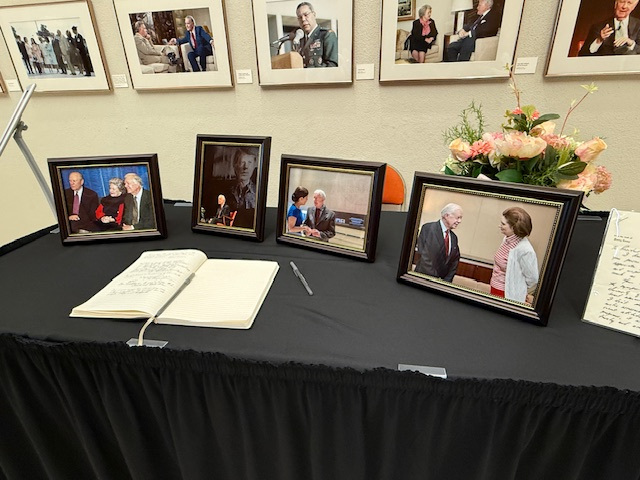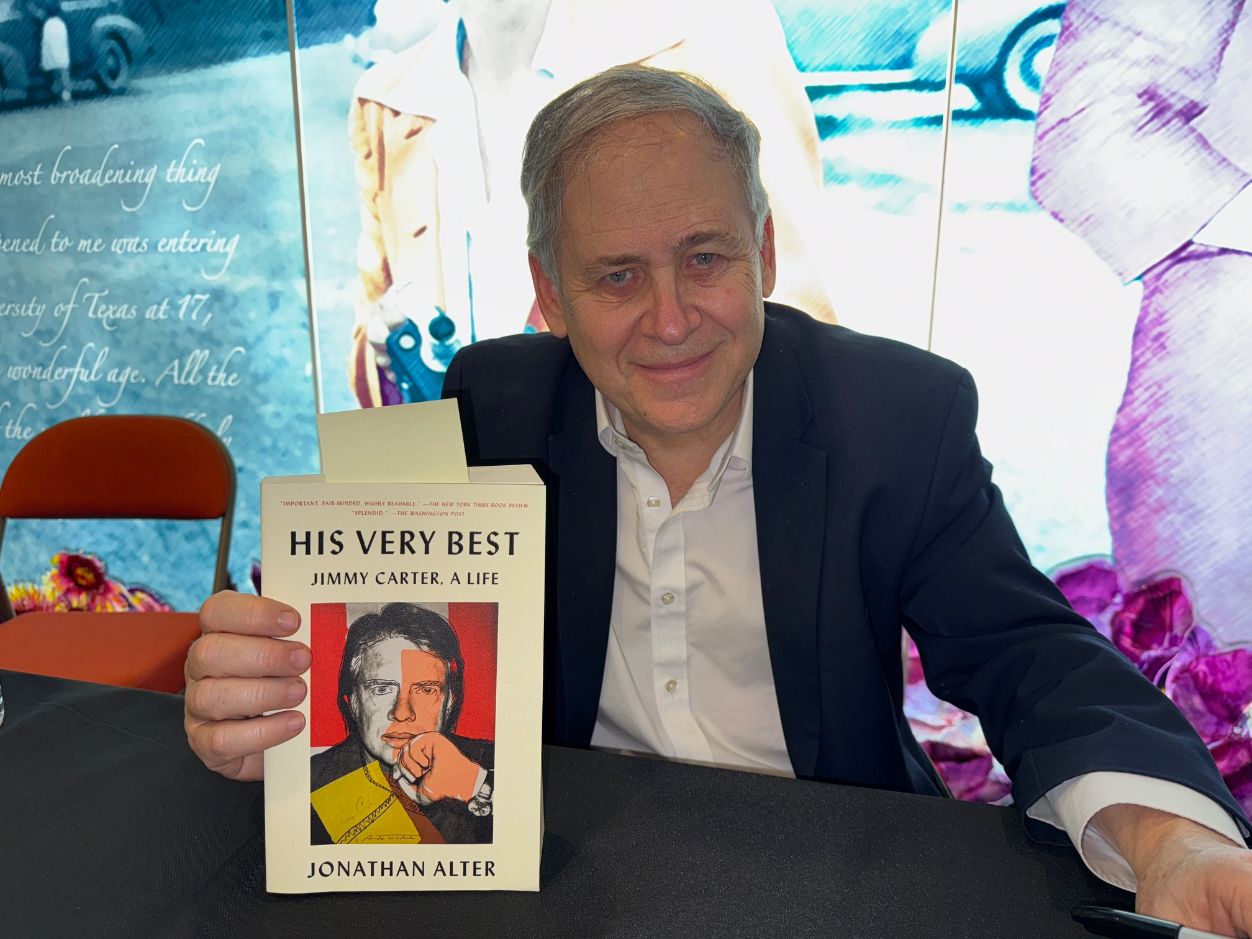Famed American journalist Jonathan Alter contrasted President Jimmy Carter with the current incumbent (DT), during an appearance at the LBJ Library a few days ago.
“DT appeals to the worst in us, Carter to the best in us. DT is corrupt, chaotic and vulgar; Carter was honest, disciplined and respectful. DT is a nationalist and authoritarian. Carter was an internationalist and devoted to the promotion of democracy. The contrast could not be starker.”
To drive the point home, Alter noted with the deepest regret that DT “has told thousands of documented lies. Carter promised in his 1976 to campaign not to lie to the American people and despite plenty of exaggerations, never did.”
Thus, Alter threw down the gauntlet. If anyone doubted where Alter stood on Carter, who was the subject of his 2020 book His Very Best, all minds were put at ease. That is not say, however, that Alter was present only to sing hymns of praise to Carter, whose funeral took place just a few days earlier.
In an assessment of Carter’s legacy, Alter bucks the trendy assumptions. In his book, Alter writes “Jimmy Carter was a surprisingly consequential president, a political and stylistic failure but a substantive and far-sighted success. And at the end, I concluded that his presidency is underrated and that his post presidency, which was path-ranking and inspiring, offered him fewer levers for change and was marred at times by his ego.” After five years of research, Alter concluded that weakness was at the heart of Carter’s presidency.
On the Iranian hostage crisis, Alter explained the option that faced Carter. “His mother, his wife, and certain advisors said, ‘Why not military action?’ ‘I could do that, I would be reelected, but the hostages would be executed and maybe 10,000 innocent Iranians would be killed. I’m not doing it,’ replied Carter.” Alter said this made him look weak, “and he did allow himself, and I think it’s a valid criticism, to almost be held hostage himself by the end of the ordeal,” which defined his presidency. Iran released the hostages as soon as Carter turned over power to Reagan, which made Reagan look strong.
Alter made a particularly revealing statement about the recently-deceased president. And it all had to do with his trademark smile.

“Carter had essentially three smiles. The big public charming smile that helped get him elected. He was not humorless at all, he really could, you know, flash that big smile. Then there was that tight-lip smile and with these, he drills his icy blue eyes into you. I experienced this a few times in our interactions: and the temperature of the world like drops by 30 degrees. You know that he is ticked off, but you’re not that sure why, and it’s unnerving. And then there was the third sort of genuine smile, which I also was lucky enough to see sometimes. But that middle smile was frosty, and he could be cold sometimes.”
Alter made the point that Jimmy’s wife Rosalind was of great importance.
“I tried to research how many couples have been married for 75 years or longer, and they’re so few they don’t even have statistics, but they think it’s fewer than 50 in the entire United States. This was an extraordinary partnership.
“She was really happy to be a Navy wife and very upset when Jimmy quit the nuclear Navy’s work for Admiral Rickover on the most exciting technological project in the middle part in the 20th century, where they were putting a nuclear power plant on a submarine before they were on land.
“She was an enormously formidable woman and one of the great pleasures of my project was getting to know her and when my book came out her reaction was told by somebody who wrote this from her, ‘Well, Jonathan had some very critical things to say about Jimmy, but he only said nice things about me.’ “(audience laughing)
Summing up, Alter reflected on the life of 100 years. “I don’t believe any politician is humble: I think it’s like a contradiction in journalism. But the modesty and the authentic modesty of this man who believed in a servant leadership, really came through in almost all of our interactions. And so I think that getting to know him between 2015 and 2020 was one of the great experiences of my life.”
Lead photo, holding book, by C. Cunningham
Close-up photo by Jay Godwin, LBJ Library
photo below: Visitors were able to sign a Condolence Book for Pres. Carter

